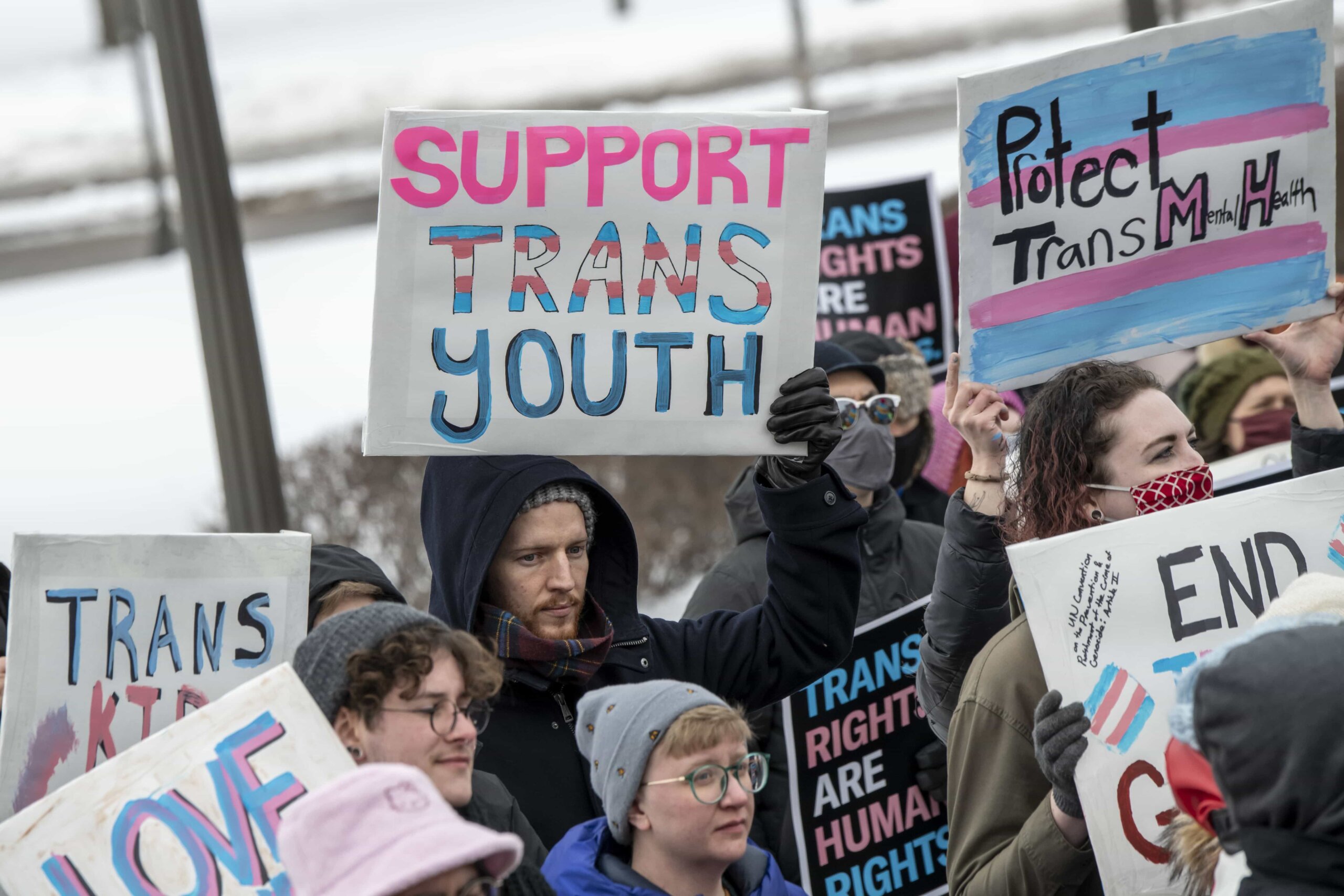At least 25 anti-trans bills have been signed into law in the United States in 2022, a record number in a year marked by historic legislative attacks on trans communities across the country.
Louisiana became the latest state to enact an anti-trans sports law on June 6 after Gov. John Bel Edwards, who had vocally condemned the legislation, declined to veto it. Senate Bill 44 passed both the Louisiana House and Senate with over two-thirds majorities, meaning that the bill’s supporters would most likely have the votes in place to override a gubernatorial veto. That outcome had been widely expected.
To save him a fight he believed he would lose, Edwards allowed SB 44 to become law without his signature attached. In a Monday press conference, he reiterated his belief that the legislation sends a “strong message” to trans youth that “they shouldn’t be who they think they are, who they believe they are, who they know that they are.”
“I find that very distressing,” the Democratic governor said in comments cited by ABC News. “I do believe that we can be better than that.”
SB 44 is one of at least 10 bills restricting athletics access for trans youth to be signed into law this year. In May, South Carolina Gov. Henry McMaster, a Republican, quietly approved a bill requiring trans student athletes to compete in alignment with the gender listed on their birth certificate in K-12 and college athletics. Before signing the bill, McMaster told reporters that his belief is that “girls ought to play girls and the boys ought to play boys,” saying “that’s the way we’ve always done it.”
When asked whether the governor was referring to “biological boys,” McMaster reportedly responded, “Is there any other kind?”
“Pride Month should be a time of celebration, not one of fear and anxiety.”
Louisiana’s bill is similar to the legislation passed in South Carolina, as well as states like Arizona, Iowa, Oklahoma and South Dakota. Applying to elementary, high school and college sports, SB 44 allows cisgender athletes who feel they have been “deprived of an athletic opportunity” because a trans student was allowed to compete in alignment with their gender identity to take legal action.
In his Monday statements, Edwards noted that there “hasn’t been a single instance in Louisiana of a trans girl participating in sports.” In vetoing an anti-trans sports ban last year, Edwards called the proposal “a solution in search of a problem that simply does not exist in Louisiana.”
SB 44 is set to become official policy on August 1.
LGBTQ2S+ advocacy groups strongly condemned the law’s passage following Edwards’s announcement earlier this week. The Trevor Project, a national youth suicide prevention organization, said the timing is particularly painful for queer and trans youth—given that SB 44 was enacted during Pride Month.
“Pride Month should be a time of celebration, not one of fear and anxiety,” said Carrie Davis, its chief community officer, in a statement. “According to The Trevor Project’s research, 83 percent of transgender and nonbinary youth said that they have worried about transgender people being denied the ability to play sports due to state or local laws. Nearly one in five attempted suicide in the past year.”
Of the more than two dozen anti-trans laws enacted in 2022 cited by The Trevor Project, the largest number target the ability of trans youth to participate in school sports. Other laws—such as those passed in Alabama, Arizona and Florida—restrict gender-affirming medical care or discussions about LGBTQ2S+ identities in the classroom.
More than 300 anti-LGBTQ2S+ bills have been introduced so far this year, according to a separate report from the Human Rights Campaign (HRC). Although a small minority of those proposals have been signed into law, many remain active in state legislatures.
“Ohio’s HB 61 is among the more extreme anti-trans sports bans ever submitted for consideration by a U.S. state legislature.”
One state that could be poised to join Louisiana in discriminating against trans youth is Ohio, where an anti-trans sports ban was advanced by the state House on June 1. The vote marked the second time that the chambers has passed a measure banning trans women and girls from playing school sports in alignment with their gender identity, but such a bill has yet to pass the Senate.
The Ohio Senate is set to hear the legislation in the coming days, and the bill has already proven extremely controversial. The original proposal, House Bill 61, passed the state House after it was attached to an unrelated piece of legislation at the last minute—which allowed it to sail through.
HB 61 is also among the more extreme anti-trans sports bans ever submitted for consideration by a U.S. state legislature. If signed into law, the legislation would force any athlete accused of being trans to verify their sex, and that process would include either a genital exam, a DNA test or a check of the student’s “endogenously produced levels of testosterone,” according to the bill text.
According to the Ohio High School Athletic Association (OSHAA), there is currently only one trans athlete competing in K-12 or college sports in the state.


 Why you can trust Xtra
Why you can trust Xtra


